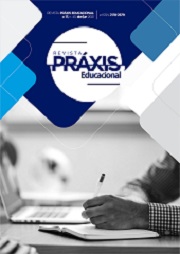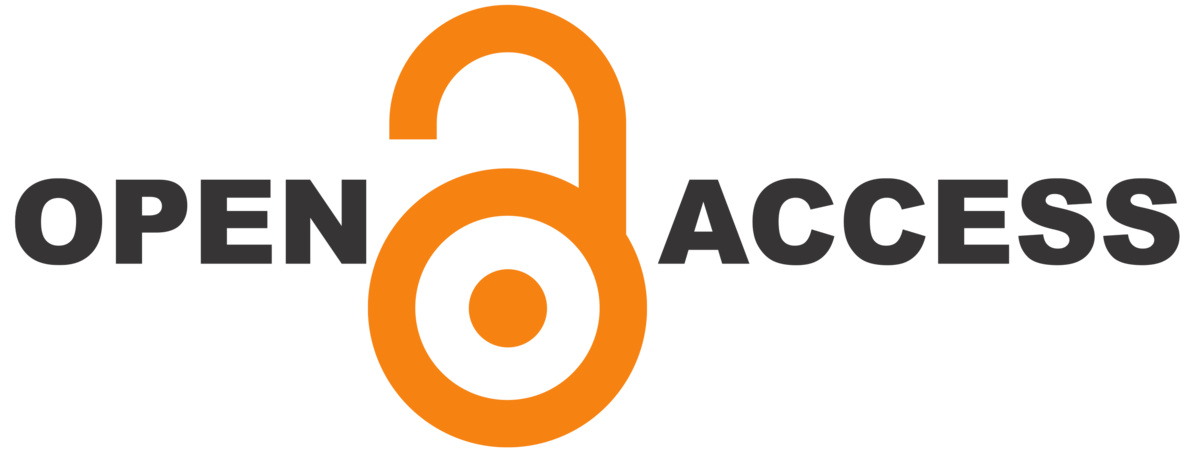Procesos de comunicación digital en el sistema educativo portugués en tiempos de pandemia
DOI:
https://doi.org/10.22481/praxisedu.v17i45.8331Palabras clave:
Educación digital y en red, Comunicación, ColaboraciónResumen
La pandemia de COVID-19 está provocando cambios a diferentes niveles y el sector educativo no ha sido inmune. La distancia social que se impuso afectó la forma de vivir la relación pedagógica, con implicaciones para los procesos de enseñanza y aprendizaje. La noción de espacio físico del aula ha dado paso a una frontera fluida donde los artefactos digitales ocupan un lugar de primacía, ya que era necesario reinventar una cultura presencial en una cultura mediada por lo digital. Para responder a esta transición, los profesores tuvieron que cambiar, alterar y adaptar rápidamente estrategias diferenciadas. La Universidade Aberta, en colaboración con el Ministerio de Educación de Portugal, diseñó e impartió un curso de formación para la docencia digital en red, con el objetivo de promover, en los docentes no superiores, las competencias en el área de la educación a distancia. Este texto se centra especificamente en las formas de comunicación entre los elementos de la comunidad educativa creados por las escuelas y cuyos representantes participaron en ese curso. Los datos recolectados provienen del referido curso de capacitación en el que participaron aproximadamente 2300 docentes y directores de 756 clusters y escuelas no clusters de todo el país. Siguiendo una metodología cualitativa, basada en el análisis crítico del discurso, nos enfocamos en la dimensión de la comunicación evidenciada en los trabajos finales que tomaron el formato de planes escolares, realizados de manera colaborativa. El análisis permitió identificar los mecanismos para garantizar la ocurrencia de las comunicaciones, evaluar la efectividad de los medios movilizados y relacionar los procesos comunicativos con el sentimiento de pertenencia a la comunidad educativa.
Descargas
Citas
ABERNATHY, Dixie; THORNBURG, Amy. Theory and application in the design and delivery of engaging online courses: Four key principles that drive student and instructor engagement and success. In: THORNBURG, Amy; ABERNATHY, Dixie; CEGLIE, Rob. (Eds.) Handbook of Research on Developing Engaging Online Courses, 2020. Disponível: https://www.igi-global.com/gateway/book/235696. Acesso em: 20 jul. 2020
ALPHIN, Henry; CHAN., Roy; LAVINE, Jennie (eds). The future of accessibility in international higher education. Hershey, PA: IGI Global, 2017.
ALPHONSO, Caroline. The educational world has been turned upside down - Online learning may reshape the classroom. In: The Globe and Mail. 2020. Disponível: https://www.theglobeandmail.com/canada/article-as-online-learning-rolls-out-education-may-change-forever/. Acesso em: 20 jul. 2020.
BALA, Manju. Use of ICT in higher education. Multidisciplinary Higher Education.: Research, Dynamics & Concepts: Opportunities & Challenges for Sustainable Development, v. 1, n. 1, p. 368-376, 2018.
BATES, Anthony. Teaching in a digital age. Vancouver: Tony Bates Associates, 2015. Disponível: https://opentextbc.ca/teachinginadigitalage/.Acesso em: 20 jul. 2020.
BATES, Anthony. Marshall McLuhan and his relevance to teaching with technology, 2011. Disponível: https://www.tonybates.ca/2011/07/20/marshall-mcluhan-and-his-relevance-to-teaching-with-technology/. Acesso em: 20 jul. 2020.
BECKMAN, Karley; APPS, Tiffani; BENNETT, Sue; LOCKYER, Lori. Conceptualising Technology Practice in Education Using Bourdieu’s Sociology. Learning, Media and Technology, v. 43, n. 2, p. 197-210, 2018.
BENTO, Marco; PEREIRA, Iris; LENCASTRE, José Alberto. Bridging the gap between practitioners and researchers: critical factors in teachers’ professional learning in the era of mobile learning. In: SYLLA, Cristina; BROOKS, Eva (Eds.) Special Issue on Bridgin. Elsevier, 2018. Disponível: http://hdl.handle.net/1822/55300. Acesso em: 20 jul. 2020
BETTINGER, Eric; FOX, Lindsay; LOEB, Susanna; TAYLOR, Eric. Virtual Classrooms: How Online College Courses Affect Student Success. American Economic Review, v. 107, n. 9, p. 2855–2875, Sept., 2017.
CHAUDHARY, Farkhanda; SHAHZADI, Irum; MAHMOOD, Azhar. Comparative study of satisfaction and problems of face to face and online mode of learners. International Journal of Distance Education and E-Learning, v. 4, n. 1, p.10-27, 2019.
CONNELLY, James; MILLER, Paula. Improving learning outcomes for higher education through smart technology. International Journal of Conceptual Structures and Smart Applications (IJCSSA), v. 6, n. 1, p. 1-17, Jan./Jun., 2018.
CRAWFORD, Joseph; BUTLER-HENDERSON, Kerryn; RUDOLPH, Jurgen; GLOWATZ, Matt. COVID-19: 20 countries’ higher education intra-period digital pedagogy responses. Journal of Applied Teaching and Learning (JALT), v. 3, n. 1, 2020.
DATNOW, Amanda; PARK, Vicky. Data-driven leadership. San Francisco: Jossey-Bass, 2019.
DIAS-TRINDADE, Sara; FERREIRA, António Gomes. Digital teaching skills: DigCompEdu Check In as an evolution process from literacy to digital fluency. ICONO14 Revista de comunicación y tecnologías emergentes, v. 18, n. 2, p. 162-187, 2020.
DUARI, Suari; SARKAR, Dhrubasish. Social networking & learning with technology: Modern approaches in educational field. International Journal of Research and Analytical Reviews, v. 5, n. 4, p. 949-954, out./dez., 2018.
FALLERY, Bernard.; RODHAIN, Florence. Quatre approches pour l’analyse de données textuelles: lexicale, linguistique, cognitive, thématique. Montréal. In: 16ème Conférence Internationale de Management Stratégique, 2007. Disponível: https://hal.archives-ouvertes.fr/hal-00821448/document. Acesso em: 20 jul. 2020.
FINKEL, Alan. Differential learning outcomes for online versus in-class education, a report to Minster of Education, Australia by Australia’s Chief Scientist, 2020.
HEITZ, Christine; LABOISSIERE, Martha; SANGHVI, Saurabh; SARAKATSANNIS, Jimmy. Getting the next phase of remote learning right in higher education. Washington, DC: McKinsey & Company, 2020.
HODGES, Charles; MOORE, Stephanie.; LOCKEE, Barbara; TORREY, Trust; BOND, Aaron. The difference between emergency remote teaching and online learning. 2020. Disponível: https://er.educause.edu/articles/2020/3/the-difference-between-emergency-remote-teaching-and-online-learning. Acesso em 20 de julho de 2020.
UNESCO. International Commission on the Futures of Education. Education in a post-COVID world. Paris, Nine ideas for public action, 2020.
LANCKER, Win; PAROLIN, Zachary. COVID-19, school closures, and child poverty: a social crisis in the making. The Lancet. Public Health, v. 5, p.243-244, 2020.
MAYS, Nicholas; POPE, Clive. Qualitative Research: Rigour and qualitative research. BMJ, 311(6997), p. 109-112, 1995.
MARTIN, Florence; BOLLIGER, Doris. Engagement Matters: Student Perceptions on the Importance of Engagement Strategies in the Online Learning Environment. Online Learning Journal, v. 22, n. 1, p. 205-222, March, 2018.
MARTINS, Guilherme. Perfil dos Alunos à Saída da Escolaridade Obrigatória. Dec-lei nº 6478/2017, Lisboa: ME, 2018.
MINISTÉRIO DA EDUCAÇÃO Roteiro: 8 Princípios orientadores para a implementação do ensino a distância (E@D) nas escolas. 2020. Disponível: https://www.dge.mec.pt/sites/default/files/roteiro_ead_vfinal.pdf. Acesso em 20 de julho de 2020.
MONTEIRO, Angélica; FIGUEIROA, Alcina; COUTO, José. Ambientes Educativos Inovadores: a realidade de escolas portuguesas. Saber e Educar, n. 25, 2018.
MOREIRA, José. António; HENRIQUES, Susana; BARROS, Daniela. Transitando de um ensino remoto emergencial para uma educação digital em rede, em tempos de pandemia. Dialogia, v. 34, p. 351-364, 2020.
MOREIRA, José António. Roteiro 3 – Comunicação no ambiente online. Lisboa: Universidade Aberta, 2020. (CC-BY-NC).
MOREIRA, José António; FERREIRA, António Gomes; ALMEIDA, Ana Cristina. Comparing communities of inquiry of Portuguese higher education students: One for all or one for each? Open Praxis, v. 5, n. 2, Apr./Jun., p.165-178, 2013.
MORTELMANS, Door. Handboek kwalitatieve onderzoeksmethoden, Leuven: Acco, 2009.
MUCCHIELLI, Alex. Dictionnaire des méthodes qualitatives en sciences humaines, Paris: Armand Colin, 2011.
MUCCHIELLI, Roger. L’analyse de contenu des documents et des communications. In: ESF (9 ème édition). Issy-Les-Moulineaux, 2006.
NORTHCOTE, Maria. The same but different: Reframing contemporary online education in higher education towards quality and integrity. In: SMIDT, Esther; LI, Rui. Ensuring quality and integrity in online learning programs. Hershey, PA: IGI Global, 2019. p. 1-32.
OKADA Alexandra. Ambientes Emergentes para coaprender e co-investigar em rede. E-Book In: VIII International Conference of ICT in Education - Challenges 213. Minho Portugal, 2013.
OKADA, Alexandra. Colearn 2.0 – Coaprendizagem via Comunidades Abertas de Pesquisa, Práticas e Recursos Educacionais. Revista e-curriculum, São Paulo, v. 7, n. 1, 2011.
OLUWAFEMI, Ifetayo; LASEINDE, T. Perception of Quality in Higher Education Institutions: A Logical View from the Literature. In: 2nd International conference on Human Systems Engineering and Design (IHSED2019): future trends and applications. Proceedings. Munich, 2019, p.1075-1083.
ORAKCI, Senol; AKTAN, Çetin; AKTAN, Osman. Relationships between teachers' professional values, attitudes, and concerns about the profession in Turkey. Educational Research, v. 30, n.2, p. 397-419, 2020.
PURNOMO, Agus; KURNIAWAN, Bayu; ADI, Khofifatu. Expanding Learning Environment Through Mobile Learning. International Journal of Emerging Technologies in Learning, v. 15, n. 7, p. 123-130, 2020.
POPE, Clive; ZIEBLAND, Sue; MAYS, Nicholas. Qualitative research in health care. Analysing qualitative data, BMJ, 320(7227), 2000, p. 114-116.
RAHIM, Emad; BURELL, Darrell. Best Practices and Emerging Trends for Knowledge Based Organizations and Academic Institutions around E-Learning. In: International Journal of Smart Education and Urban Society, v. 11, n. 2, 2020, p.16-27.
TERESEVICIENE, Margarita; TREPULE, Elena; DAUKSIENE, Estela; TAMOLIUNE, Giedre; COSTA, Nilza. Are Universities Ready to Recognize Open Online Learning? International Education Studies, v.13, n. 2, p.21-32, 2020. Disponível: http://www.ccsenet.org/journal/index.php/ies/article/view/0/41889. Acesso em: 20 jul. 2020.
VELETSIANOS, George. Learning Online: The Student Experience. Baltimore, MD: Johns Hopkins University Press, 2020.
VUORIKARI, Riina; PUNIE, Yves; CARRETERO GOMEZ Stephanie; VAN DEN BRANDE, Godelieve. DigComp 2.0: the Digital Competence Framework for Citizens. Update Phase 1: The Concept, 2016.
WILLIAMSON, Ben; EYNON, Rebecca; POTTER, John. Pandemic politics, pedagogies and practices: digital technologies and distance education during the coronavirus emergency. Learning, Media and Technology, v. 45, n. 2, p. 107-114, 2020.
WHITER, Kimberly. A. Strategies for engaging students in the online environment. In: ALQURASHI, Emtinan. Handbook of research on fostering student engagement with instructional technology in higher education. Hershey, PA: IGI Global, 2020, p. 305-326.
Descargas
Publicado
Cómo citar
Número
Sección
Licencia

Esta obra está bajo una licencia internacional Creative Commons Atribución-CompartirIgual 4.0.
Você é livre para:
Compartilhar - copia e redistribui o material em qualquer meio ou formato; Adapte - remixe, transforme e construa a partir do material para qualquer propósito, mesmo comercialmente. Esta licença é aceitável para Obras Culturais Livres. O licenciante não pode revogar essas liberdades, desde que você siga os termos da licença.
Sob os seguintes termos:
Atribuição - você deve dar o crédito apropriado, fornecer um link para a licença e indicar se alguma alteração foi feita. Você pode fazer isso de qualquer maneira razoável, mas não de uma forma que sugira que você ou seu uso seja aprovado pelo licenciante.
Não há restrições adicionais - Você não pode aplicar termos legais ou medidas tecnológicas que restrinjam legalmente outros para fazer qualquer uso permitido pela licença.












